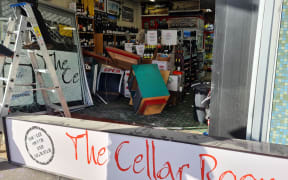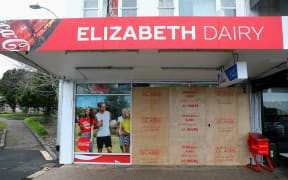A police report suggests groups of ram raiders are meeting in juvenile detention, and almost two thirds are escaping prosecution.
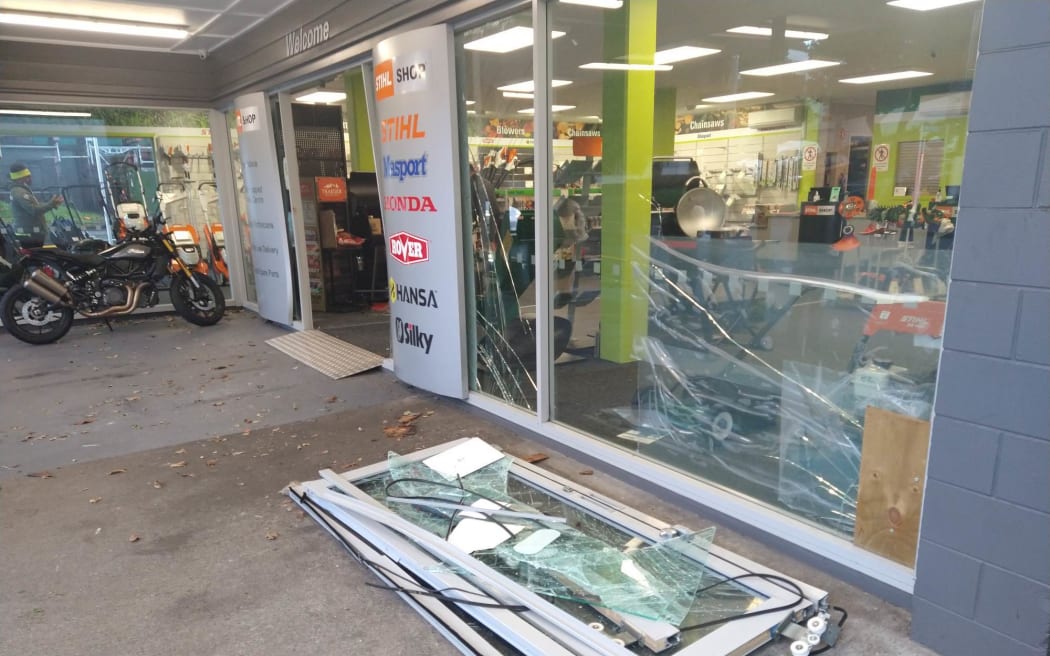
The Stihl Shop on New North Rd, Mt Albert, was damaged in a ram raid. Photo: Supplied / Kieran Croxton
There has been a 400 percent increase in ram raids in five years - and 76 percent of those being caught are under the age of 18.
Data released to RNZ under the Official Information Act showed in the 12 months until July the police recorded 436 ram raids.
That figure was more than double the 12 months before it, when there were 191 ram raids recorded.
In the same 12 months five years ago, there were 84 ram raids recorded.
It means shopkeepers around the country are now sweeping up glass, boarding up their shop fronts, and assessing stock losses an average of eight times every week.
Among them was Leon Law, who woke one morning in June to CCTV footage of a ram raid on his store, Stihl Shop Mt Albert.
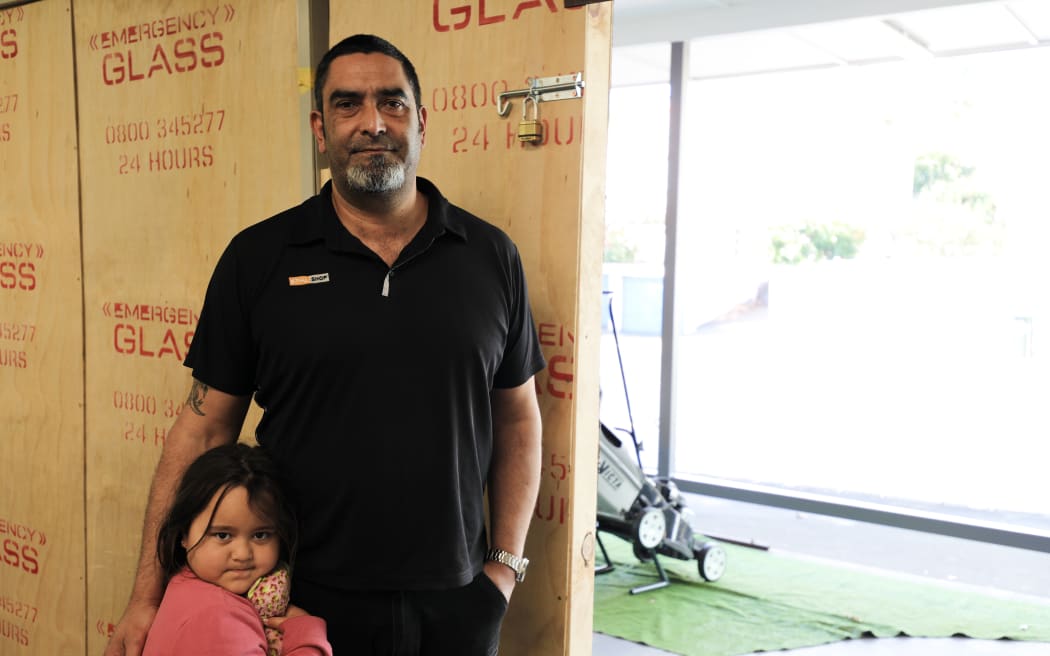
Leon Law Photo: RNZ / Marika Khabazi
"I saw the carnage from the van driving through our front door and I just ... did a bit of an exhausted sigh, realising we were another statistic," he said.
"I had literally, the day before, been sent a quote to increase the building security."
Police had noticed a "drastic increase" in ram raids late in January 2022, according to a report compiled by the Police Intelligence Centre around that time.
That report, also released under the Official Information Act, investigated who the offenders were and noted it was largely "a youth offending issue".
About 76 percent of the offenders caught between November 2020 and November 2021 were under the age of 18, it said, and 88 percent were under 22.
Among them were 38 "repeat offenders" aged between 12 and 19 years old - responsible for more than a quarter of all ram raids.
Four percent of the offenders were patched gang members, 5 percent were gang associates and 5 percent were gang prospects.
There was also a possible "link to organised youth crime", the report said.
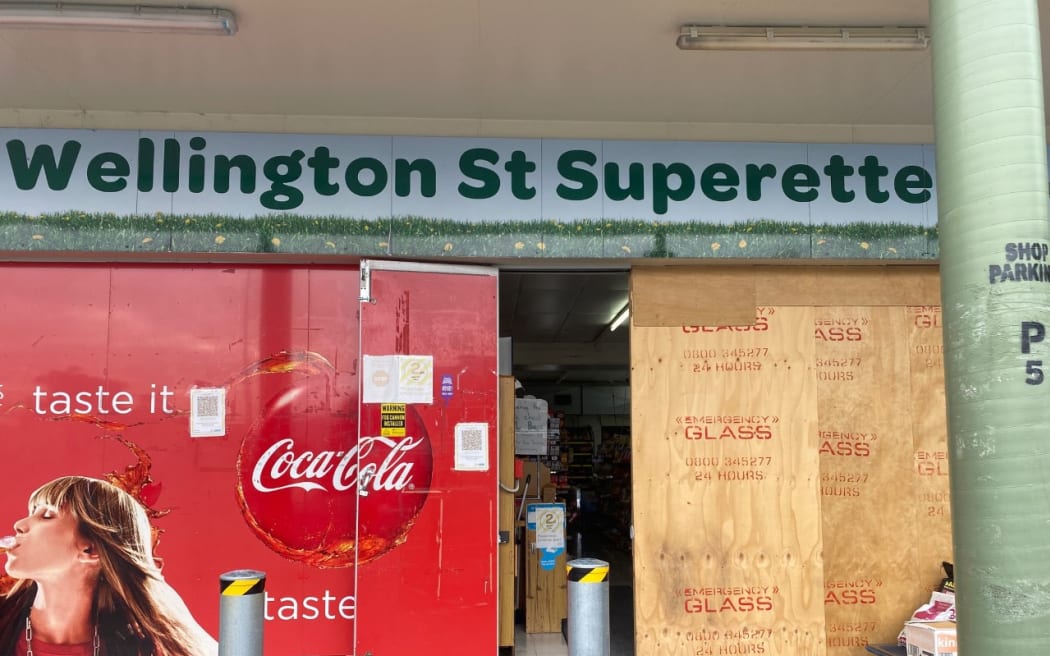
A shop's damaged store front afer it was rammed. Photo: Katie Todd
In Waikato, "members often meet in juvenile custody", then "make connections with youth offenders in other districts", with the stolen goods "shared amongst themselves".
The ram raiding was being done "for fun and notoriety", it said, adding that "sometimes it is live-streamed for others to view".
'A lot of these boys just live life on edge' - youth worker
That was something Israel Meredith had noticed as a youth worker in South Auckland.
"It's like a fad going on, on social media. It's become a trend to want to be the coolest - who has got the highest number of ram raids, or who has got the biggest score. To them, it becomes a game," he said.

Israel Meredith Photo: RNZ / Simon Rogers
In his work with young ram raiders, through the programme Boys 2 Men Manurewa, he said he had noticed many of the offenders came from broken homes.
They lacked good role models, instead looking up to the "big gangsters" and rich drug dealers in their hood, he said.
"A lot of them are stuck in poverty. A lot of them don't actually have a house to go to. They travel from house to house. They pop cars to get to their friends houses and then stay there for as long as they can until they get caught by the police who only end up sending them back home ... they end up doing the same crime again. It's just a cycle," he said.
"They're stuck in this tunnel vision of, 'this is life, this is it, it's just short and quick. If I die in this ram raid I don't care, cause I don't have anything to live for in the first place'. A lot of these boys just live life on edge because they don't expect to make it past 30."
Goods stolen in 81 percent of ram raids
Ram raids are costing targeted businesses thousands in stolen items and damage.
The January police report said items were taken in about 81 percent of ram raids.
Top on the list of targeted items was money and the cash register, followed by retail goods and cigarettes.
The person who ram raided Law's shop took nearly $20,000 in saws, and he said he had spent weeks spent waiting for replacement windows.
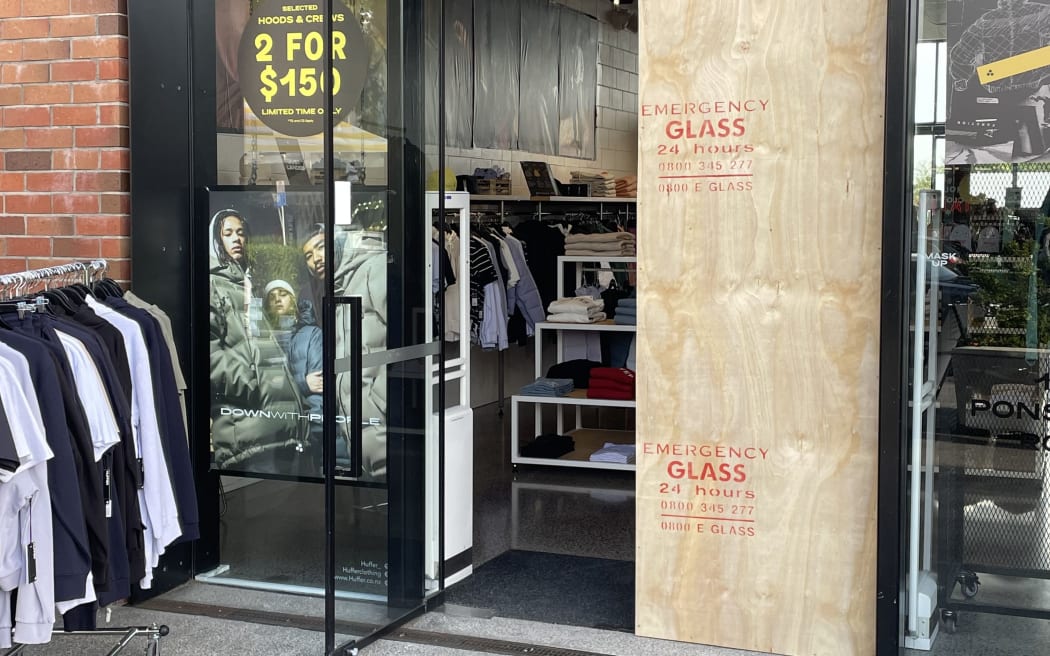
Photo:
Unable to get funding for bollards, he said he had also done what he could to protect his store from further ram raids, by installing steel bars right around it.
"For us winter is a quiet time of the year so we don't have a lot of capital hanging around for things like this. We had some friends supply some steel and do a bit of fabricating and family to complete it. We've done what we can afford to do at the moment," he said.
37 percent of ram raids resulted in enforcement action
The report in January noted that the majority of ram raiders were not being identified or prosecuted.
It said 37 percent of ram raids had resulted in enforcement action.
In 61 percent of those instances, the offenders were prosecuted and in 39 percent of instances, they were referred to youth agencies.
It means charges had been pressed in just 22 percent - one in five - instances.
However, police said they had achieved "some significant success" in their work to target ram raid offending.
In Waikato, acting area commander Andrew Mortimore said Operation Pryor had made a notable difference in the months since the report.
"I think it would be fair to say, at the moment, it's not a prevalent crime type right now in the district.
"Since earlier this year we've made 206 arrests, and of those 206 arrests we have 823 offences which people have been charged with. That's not just commercial burglary or burglary, that's other offending such as unlawful taking of motor vehicles, receiving motor vehicles, receiving stolen property, assaults, threats, intimidation etc."
Operation Pryor was still underway he said, and staff were working "diligently" to identify repeat offenders.
Police said its National Retail Investigation Support Unit was also engaging with retailers to target retail crime repeat offenders, "particularly those using intimidation and violence".

